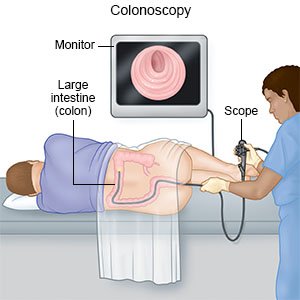Short Bowel Syndrome
Medically reviewed by Drugs.com. Last updated on Aug 4, 2025.
What is short bowel syndrome?
Short bowel syndrome is a condition that prevents your intestines from absorbing nutrients. Short bowel syndrome occurs when the intestine is shorter than normal or does not work the way it should.
 |
What causes short bowel syndrome?
You may have been born with a short bowel. Causes include tumors, radiation, infections, surgery to remove part of the intestine, and conditions such as Celiac disease.
What are the signs and symptoms of short bowel syndrome?
Diarrhea is the most common symptom of short bowel syndrome. You may also have any of the following:
- Abdominal cramps
- Bloated abdomen
- Rapid weight loss
- Fatigue
- Hair loss
- Rash around your rectum
How is short bowel syndrome diagnosed?
Your healthcare provider will ask about your medical history and examine you. You may need any of the following tests:
- Blood tests may be used to check your vitamin, mineral, and electrolyte levels.
- Bowel movement samples may be checked for carbohydrates or fats that were not absorbed properly from food. The samples may also be checked for blood or mucus.
- A breath test helps your healthcare provider know if you have an infection in your intestines. You breathe into a machine that measures how well you absorb carbohydrates (sugars).
- Abdominal x-ray pictures of the organs inside your abdomen may show problems such as blocked, shortened, or enlarged intestines.
- A barium enema is an x-ray of the colon. A tube is put into your anus, and a liquid called barium is put through the tube. Barium is used so that healthcare providers can see your colon better on the x-ray film.
- Colonoscopy or sigmoidoscopy are procedures that use a tube with a light on the end. The tube will be put into your anus, and then moved forward into your intestine. A sigmoidoscopy looks at the lower part of your intestine. A colonoscopy looks at your entire intestine.

How is short bowel syndrome treated?
- Medicines may help treat or prevent a bacterial infection, diarrhea, or too much stomach acid. You may also need vitamin and mineral supplements because your intestines cannot absorb these nutrients from food.
- Surgery may be needed if your intestines become blocked or your bowel is very short. Healthcare providers will lengthen your bowel or remove the blockage. You may need a bowel transplant.
Treatment options
The following list of medications are related to or used in the treatment of this condition.
When should I seek immediate care?
- You have severe abdominal pain.
- Your bowel movements are dark or have blood in them.
- You are lightheaded and feel like you are going to faint.
When should I call my doctor?
- You have a fever.
- You feel achy, or have chills, weakness, or a cough.
- Your abdominal pain does not go away, even after treatment.
- You have questions or concerns about your condition or care.
Care Agreement
You have the right to help plan your care. Learn about your health condition and how it may be treated. Discuss treatment options with your healthcare providers to decide what care you want to receive. You always have the right to refuse treatment. The above information is an educational aid only. It is not intended as medical advice for individual conditions or treatments. Talk to your doctor, nurse or pharmacist before following any medical regimen to see if it is safe and effective for you.© Copyright Merative 2025 Information is for End User's use only and may not be sold, redistributed or otherwise used for commercial purposes.
Learn more about Short Bowel Syndrome
Treatment options
Medicine.com guides (external)
Further information
Always consult your healthcare provider to ensure the information displayed on this page applies to your personal circumstances.
